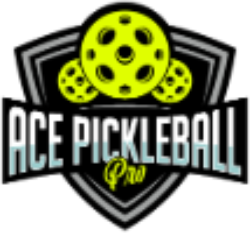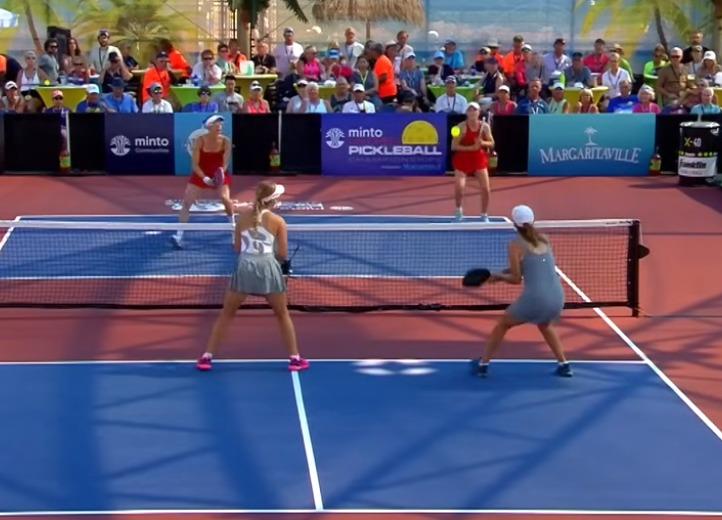The High-Performance Playbook
“Pickleball isn’t just a sport—it’s the science of movement, mindset, and milliseconds.”
My First Tournament Lasted 9 Minutes
Not the match—the entire tournament.
I walked in like I owned the place. Had my paddle, my fresh new shoes, and just enough confidence to get completely wrecked. Eleven-zero. Eleven-three. It wasn’t even close.
That day, I realized something: pickleball rewards brains over biceps. It’s not about age, height, or even speed. It’s about who can master the moment.
That’s why I built this guide—for players like you. The ones hungry to level up. Who know there’s more under the hood than just getting the ball over the net.
So if you’re tired of playing not to lose, and you’re ready to start owning the court like it owes you rent… let’s go.
PHASE 1: Tactical Mastery Starts with Fundamentals
1. Court Awareness: Build a Mental Map
Think of the court as a chessboard made of chaos. Your first goal? Understand the kitchen—the 7-foot “no-fly zone” where rallies are won, nerves are tested, and egos get cooked.
What is the kitchen rule in pickleball?
Pro Tips:
- Use painter’s tape to mark zones and train visual recall.
- Run eye-tracking drills to train anticipation.
- Use ladder drills to build light feet and quicker positioning.
2. Serving as a Strategic Weapon
The serve isn’t just a formality. It’s your first chance to throw your opponent off rhythm.
Before you swing, ask: “Do I want to create space, speed, or chaos?”
Here’s how to level up your serve.
Serve Variations to Master:
- Power Serve – Flat, deep, aggressive.
- High Arch Serve – Buys time for you to position.
- Topspin Serve – Adds bite and bounce.
3. Understanding the Double Bounce Rule
It sounds simple, but the double-bounce rule completely changes the tempo.
Execution Tips:
- Stay deep and steady on the return.
- Sprint forward like you’re chasing a loose $100 bill after bounce two.
- Practice third shots like your match depends on them—because it does.
Here’s why the third shot drop is a game-changer.
PHASE 2: Advanced Shotcraft — From Control to Kill
4. The Art of Dinking
The dink is not weak. It’s a surgical disarmament.
Keys to Dink Domination:
- Paddle face slightly open.
- Light grip, soft hands.
- Aim for toes or deep corners of the kitchen.
Here’s your full guide to dinking like a master.
5. The Third Shot Drop — The Master’s Move
Low-to-high swing. Soft landing in the NVZ. Reset control.
6. Volley Domination
Types of Volleys:
- Block – Calm under pressure.
- Punch – Control with aggression.
- Angle – Crack the court open.
- Reset – Breathe, then rebuild.
Never volley flat-footed. Footwork fuels the fury.
7. The Overhead Smash — A Finisher’s Weapon
Nothing shuts down a rally like an overhead smash done right. It’s dominance in a single swing.
Execution Guide:
- Position early under the ball
- Use a continental grip
- Prioritize placement over power
Want to dominate lobs? Train lob return drills and make your overheads clinical.
PHASE 3: Strategic Pattern Play & Opponent Profiling
8. Shot Selection Matrix
Smart players don’t react. They select, based on situation.
| Court Zone | Opponent Back | Opponent at Net |
|---|---|---|
| Baseline | Drive or Drop | Lob or Reset |
| NVZ Line | Dink or Angle | Punch Volley |
9. Player Archetypes and Counterstyles
| Archetype | Traits | Counter Strategy |
|---|---|---|
| The Banger | Power-only | Lure into dinks, disrupt rhythm |
| The Grinder | Endless defense | Change rhythm, use deep angles |
| The Deceiver | Fakes, lobs, chaos | Hold court position, don’t bite |
| The Algorithm | Predictable | Hit with variety and spin |
Tips for intermediate players who want to out-strategize.
PHASE 4: Mental Conditioning & Cognitive Warfare
- Pre-Serve Rituals: Deep breath → visualize → paddle tap → swing.
- Box Breathing: Inhale 4 → Hold 4 → Exhale 4 → Hold 4
- Mirror Neuron Drill: Watch slow-motion footage and mentally rehearse the move.
PHASE 5: Conditioning for Court Domination
- Agility: Cone sprints, ladder drills, direction changes.
- Core + Footwork: Planks, twists, split-step reaction drills.
- Cardio: Sprint + mental task combos to simulate pressure.
Footwork is everything—train smarter, not harder.
PHASE 6: The Future of Pickleball — Tech & Neuro-Performance
- Smart Paddles & AI Feedback – like Fitbit meets Federer.
- AR Training – color-coded shot targets, eye-tracking drills.
- Strategic Evolution Matrix – a quadrant for physical, mental, tactical, tech.
Not ready for smart gear? Here’s a guide to picking a paddle that actually fits your level.
Which Pickleball Player Type Are You?
(Not a quiz. Just a mirror with paddle-shaped goggles.)
The Banger
Strength: Power
Weakness: Control
Recommended paddle for power players.
The Tactician
Strength: Strategy
Weakness: Overthinking
How to improve your mental edge.
The Grinder
Strength: Endurance
Weakness: Aggression
Drills to help build offensive footwork.
The Disruptor
Strength: Creativity
Weakness: Consistency
Try spin-focused paddles here.
Frequently Asked Questions
What’s the most important shot in pickleball?
The third shot drop. It’s the rally reset that flips the script.
Learn why.
Can I serve overhand?
Nope — it’s underhand only.
More on serve rules.
What gear do I need to start?
Just a paddle, shoes, and some balls.
Full breakdown here.
How do I improve fast?
Focus on fundamentals: serve, dink, third shot.
Here’s the best way to learn.
Final Takeaway
You don’t need a new paddle to win. You need a new plan.
This guide gave you: ✅ The phases of mastery
✅ Strategic playstyles
✅ Drills for brain + body
✅ Tech tips for next-gen domination
✅ A mirror to see your paddle identity
Want more guides like this? Explore the full Ace Pickleball Pro ecosystem, where paddle meets precision and swagger meets science.

